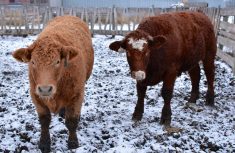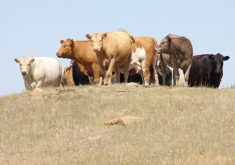Changes are happening at Animal Health Canada, which announced updates, including work on training and response programs and additions to its Emergency Management division staff.
Erica Charlton, director of the division, delivered updates at the recent AHC forum in Ottawa.
Charlton mentioned a new depopulation training project that is underway in partnership with ACER consulting.
Read Also

Trump’s tariffs take their toll on U.S. producers
U.S. farmers say Trump’s tariffs have been devastating for growers in that country.
“This will help inform a Canadian training program that we’re going to develop with ACER,” she said.
AHC has a workshop scheduled for early November with international experts presenting on best practices, which will also help inform the Canadian training program.
“It’s been opened up beyond the swine sector to include other livestock sectors because depopulation has a lot of similarities.”
“In mid-summer, with the (avian influenza) outbreak still raging in the U.S., we thought we’d better get in front of folks that do fairs and exhibitions,” Charlton said.
AHC worked with the Canadian Food Inspection Agency, the Public Health Agency of Canada, Dairy Farmers of Canada and others “to very quickly turn around and produce biosecurity recommendations for fairs and exhibition audiences.”
The information was then posted online and shared through organizations like 4-H Canada.
Charlton introduced the new members of the emergency management team:
Michelle Follensbee, emergency management project manager, will focus on the wild pig file and ASF exercise planning.
Dr. Afolakemi (Kemi) Adeniji is the emergency management project lead and liaison on CanSpotASF committees for ASF surveillance.
Kori Maki-Adair, the Emergency Management division co-ordinator is working on division administration, and Temidayo Adewole is the project manager and videographer.
AHC is moving forward with mock exercises to prepare for outbreaks of African swine fever.
“As the sector creates ASF preparedness plans, we owe it to ourselves to test them through mock exercises.”
Several exercises happened over the past year, Charlton said. They were hosted by AHC or by the Canadian Federation of Agriculture with AHC in attendance.
Charlton also gave on update on the foot-and-mouth disease emergency response plan.
“This work will focus on clarifying, helping and finding roles and responsibilities for federal, provincial and territorial governments and industry partners in the event and before an animal disease outbreak,” she said.
“To do this, we’ve recently struck a number of smaller committees and discussions.”
AHC also has some related exercises planned for Nov. 25.















